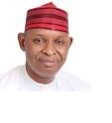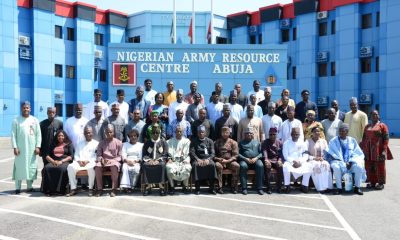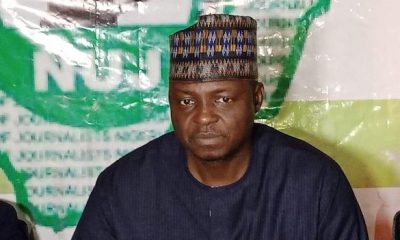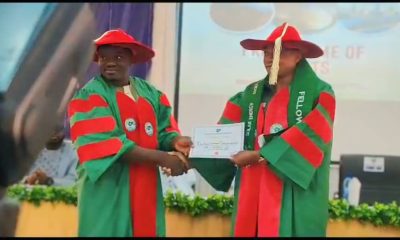Foreign News
CAMA Will Help Nigeria Fight Corruption, Buhari Tells UNGA
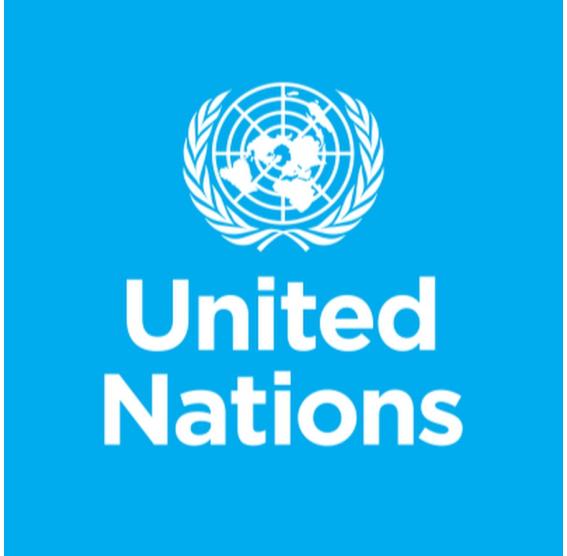
By Mathew Dadiya, Abuja
President Muhammadu Buhari Thursday, explained that the recently passed controversial Companies and Allied Matters Act, 2020 (CAMA) in Nigeria will enhance transparency and corporate accountability in the fight against corruption.
President Buhari spoke on Thursday in a video message presented at the Open Government Partnership (OGP) 2020 Virtual Leaders’ Summit on the sidelines of the 75th Session of the United Nations General Assembly (UNGA75) in New York, United States.
”Since the inception of our Administration in 2015, the Government has been committed to changing international and domestic perceptions regarding Nigeria’s commitment to fight corruption and foster good governance.
”We focused on the task of dealing head-on with this destructive monster, which led to us joining the Open Government Partnership and making reform commitments such as to establish a public central register of beneficial owners of corporate entities.
”Since then, we have made significant progress in implementing tougher anti-corruption measures, including my recent assent to the Companies and Allied Matters Act, 2020.
”The Act provides a legal framework for the implementation of Beneficial Ownership Information Disclosure in Nigeria.
”Being an OGP member-country has helped Nigeria learn from other countries tackling similar challenges, and to build a coalition to support these reforms across the private sector and civil society. It has also aided our journey towards building citizens’ trust in government,” he said.
As COVID-19 cases continue to accelerate worldwide, President Buhari told the Summit that it had become clear that governments cannot solve all the challenges of the pandemic alone, stressing it is only through open governance and working with citizens that nations can succeed.
”We face a significant contraction in the global economy in 2020; the world is facing the unprecedented twin challenges of managing the health and economic impacts of the pandemic.
”In these times, citizens worldwide are seeking more information, engagement, and support from their governments,” he said.
The Nigerian leader pledged that his administration would continue to use its OGP membership to ensure that open government approaches strengthen the pandemic management, adding that the Nigerian government will sustain consultations and engagements with citizens through Civil Society Organisations and the Organised Private Sector on COVID-19 response and recovery plan.
According to the President, ”these consultations are in line with the effort of our administration to encourage public participation in government policies and programs.
”Our recovery package includes support to businesses, to vulnerable communities and an expansion of public works. Our aim is to make all these efforts more effective by making them open. ”
President Buhari recounted that soon after joining this partnership, Nigeria had the privilege of being elected to the OGP Global Steering Committee.
As a leader in the OGP Steering Committee, President Buhari acknowledged that Nigeria has learnt from both government and non-government counterparts on international best practices.
”I am also glad that Nigeria’s pioneering sub-national Open Government Partnership Model has become one of the leading examples driving the expansion of the Open Government Partnership Local Programme.
”Nigeria will also champion the tenets of the Open Government Partnership through our leadership role in regional institutions.
”We aim to expand the partnership on the African Continent by continuing to play a leading role in the International Steering Committee.
”As we look forward to celebrating 10 years of the existence of the Open Government Partnership next year, it is my earnest wish that all countries in the world will adopt Open Government principles and help democracy live up to the expectations of citizens having a voice at and beyond the ballot box, ” he said.
President Buhari thanked the leadership and staff of the OGP Global Support Unit for the enormous work they do to ensure that voices are not only heard but valued.
He encouraged Nigerians to get involved in the OGP and help shape and sustain the country’s democracy now and in the future.
Among those who participated in the virtual event were Heads of State and Government of Argentina, Canada, France, Georgia and Germany as well as civil society leaders who have played a central role in their countries to ensure a full, fair, and inclusive response and recovery.
Foreign News
President Yoon Banned from Leaving South Korea
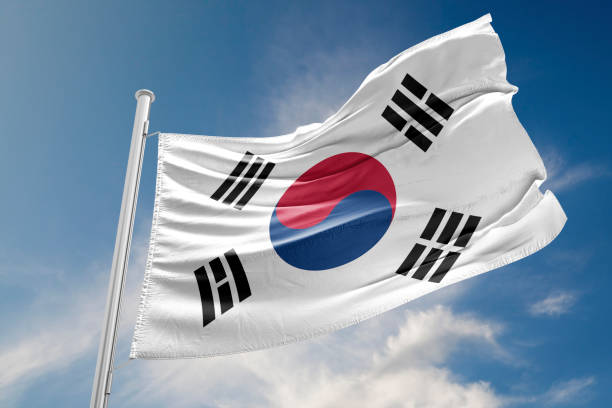
The South Korean Government ordered an overseas travel ban on President Yoon Suk Yeol.The South Korean news agency Yonhap reported on Monday that the travel ban is due to the ongoing investigation into Yoon, which involves suspicion of high treason.Yoon unexpectedly imposed martial law on his country last Tuesday night, but hours later, after massive political resistance, he repealed the order.
On Saturday evening, a motion by the opposition to impeach the president in parliament failed. However, public pressure against the 63-year-old continues. (dpa/NAN)Foreign News
Israel Threatens to Expand War if Hezbollah Truce Collapses

Israel threatened on Tuesday to return to war in Lebanon if its truce with Hezbollah collapses and said this time its attacks would go deeper and target the Lebanese state itself, after the deadliest day since the ceasefire was agreed last week.
In its strongest threat since the truce was agreed to end 14 months of war with Hezbollah, Israel said it would hold Lebanon responsible for failing to disarm militants who violated the truce.
“If we return to war we will act strongly, we will go deeper, and the most important thing they need to know: that there will be no longer be an exemption for the state of Lebanon,” Defence Minister Israel Katz said.
“If until now we separated the state of Lebanon from Hezbollah… it will no longer be (like this),” he said during a visit to the northern border area.
Despite last week’s truce, Israeli forces have continued strikes in southern Lebanon against what they say are Hezbollah fighters ignoring the agreement to halt attacks and withdraw beyond the Litani River, about 30 km (18 miles) from the frontier.
On Monday, Hezbollah shelled an Israeli military post, while Lebanese authorities said at least 12 people were killed in Israeli airstrikes on Lebanon.
Katz called the Hezbollah attack “the first test” and described Israel’s strikes as a strong response.
The Beirut government must “authorise the Lebanese army to enforce their part, to keep Hezbollah away beyond the Litani, and to dismantle all the infrastructure,” Katz said.
“If they don’t do it and this whole agreement collapses then the reality will be very clear.”
Top Lebanese officials urged Washington and Paris to press Israel to uphold the ceasefire, after dozens of military operations on Lebanese soil that Beirut has deemed violations, two senior Lebanese political sources told Reuters on Tuesday.
The sources said caretaker Prime Minister Najib Mikati and Speaker of Parliament Nabih Berri, a close Hezbollah ally who negotiated the deal on behalf of Lebanon, spoke to officials at the White House and French presidency late on Monday.
Mikati, quoted by the Lebanese news agency, said that diplomatic communications had intensified since Monday to stop Israeli violations of the ceasefire.
He also said a recruitment drive was under way by the Lebanese army to strengthen its presence in the south.
U.S. State Department spokesperson Matt Miller told reporters on Monday that the ceasefire “is holding” and that the U.S. had “anticipated that there might be violations”.
Neither the French presidency nor the foreign ministry were immediately available to comment.
French Foreign Minister Jean-Noel Barrot spoke to his Israeli counterpart Gideon Saar on Monday, saying both sides should adhere to the ceasefire.
The truce came into effect on Nov. 27 and prohibits Israel from conducting offensive military operations in Lebanon, while requiring Lebanon to prevent armed groups including Hezbollah from launching attacks on Israel.
It gives Israeli troops 60 days to withdraw from south Lebanon.
A mission chaired by the United States is tasked with monitoring, verifying, and helping enforce the truce, but it has yet to begin work.
Berri on Monday called on the mission to “urgently” ensure Israel halts its breaches, saying Beirut had logged at least 54 Israeli violations of the ceasefire so far.
Israel has said its continued activity in Lebanon is aimed at enforcing the ceasefire.
Lebanon’s Mikati met in Beirut on Monday with U.S. General Jasper Jeffers, who will chair the monitoring committee.
Two sources familiar with the matter told Reuters that France’s representative to the committee, General Guillaume Ponchin, would arrive in Beirut on Wednesday and that the committee would hold its first meeting on Thursday.
“There is an urgency to finalise the mechanism, otherwise it will be too late,” the source said, referring to Israel’s gradual intensification of strikes even with the truce in place. (Reuters/NAN)
Foreign News
Starmer Rules out Re-running UK Election as Petition Gets Signatures

British Prime Minister Keir Starmer has ruled out calling another general election, but said he is “not surprised” some people who did not support his party, Labour, might want a second poll.
A petition on Parliament’s website calling for another election has now been signed by more than two million people.
“I would like there to be another general election,” it reads.
“I believe the current Labour Government have gone back on the promises they laid out in the lead-up to the last election.
”Asked about the petition on ITV’s “This Morning” programme on Monday, Starmer said: “Look, I remind myself that very many people didn’t vote Labour at the last election.
“I’m not surprised that many of them want a re-run. That isn’t how our system works.
“There will be plenty of people who didn’t want us in the first place.
“So, what my focus is on is the decisions that I have to make every day.”
He characterized decisions taken so far by his government as “tough but fair.”
Starmer and his ministers have faced a particularly strong backlash for limiting winter fuel payments to only the poorest pensioners.
Farmers have also protested over changes to inheritance tax which they claim could affect the future of their businesses.
As he marks five months as prime minister, Starmer acknowledged the job has been difficult, but added: “I wouldn’t swap a single day in opposition for a day in power.
“It’s much better to be in power to do things, rather than the frustration, as I found it, in opposition for all of those long years where we were just able to say what we would do.”
The petition calling for another general election is open for signatures until May 2025.
While the vast majority of those signing it are from the UK, it has also gained support from other countries.
More than 1,200 people from the U.S. have added their names to it, with similar a number from France doing the same.
American signatories may have been made aware of the petition by Elon Musk, the businessman and ally of President-elect Donald Trump.
He shared the petition on X, the social media site he owns formerly known as Twitter, claiming “the people of Britain have had enough of a tyrannical police state”.
Starmer’s office sought to avoid being drawn into a war of words with Mr Musk.
The prime minister’s official spokesman added Starmer was “focused on the issues that matter most to the British people.”
Although it has garnered media attention and millions of signatures, it is far from the largest petition received through the Parliament website, or the one which has seen the most rapid take-up.
In 2019, some 6.1 million people signed a petition calling for the revocation of Article 50 and for the United Kingdom to remain in the European Union, four million of whom did so in 48 hours.
The second most-signed petition gained 4.1 million signatures.
The 2016 petition called for a second referendum on the UK’s membership of the European Union following the Brexit vote.
Because the election petition has received 10,000 signatures, ministers will issue a response to it.
MPs may consider it further in a Westminster Hall debate because it has been signed by more than 100,000 people, although this is not guaranteed.
A petition which has successfully made it to debate is one calling for social media companies to ban under 16-year-olds from their platforms after it received more than 110,00 signatures.
Another calling for the law around school term-time holidays to be relaxed, which received 250,000 signatures, was due for debate on Monday afternoon.
Michael Westwood, the man who started the petition, has confirmed he voted Conservative at the summer election.
But he told Talk TV he did not know if this would be the case again, adding: “One thing’s for certain, I wouldn’t be voting Labour.”
Among those sharing the petition online was retired actor Sir Michael Caine, who has been critical of Labour governments in the past. (PA Media/dpa/NAN)

